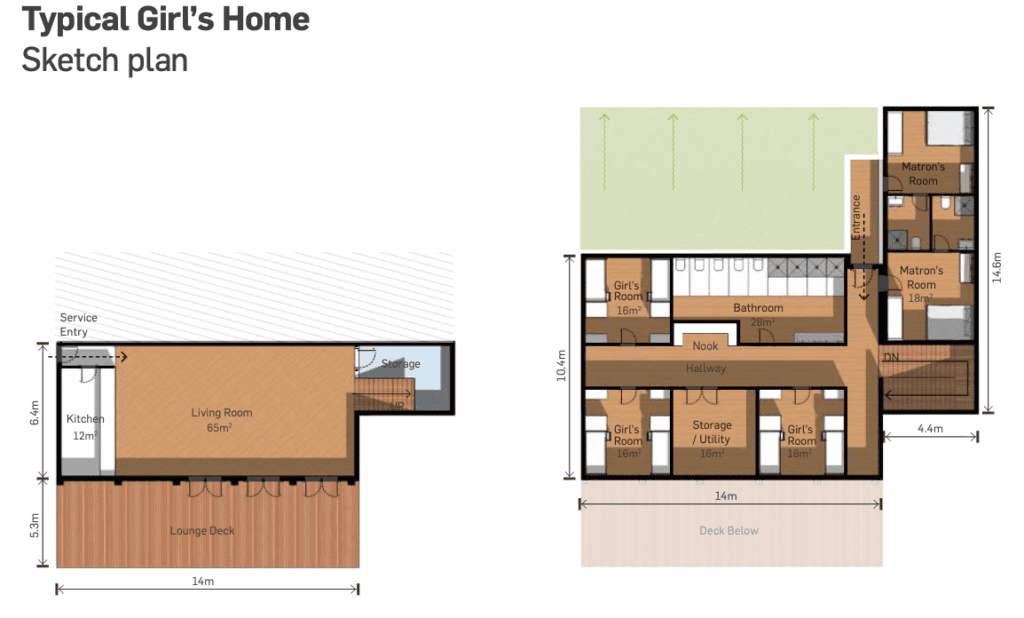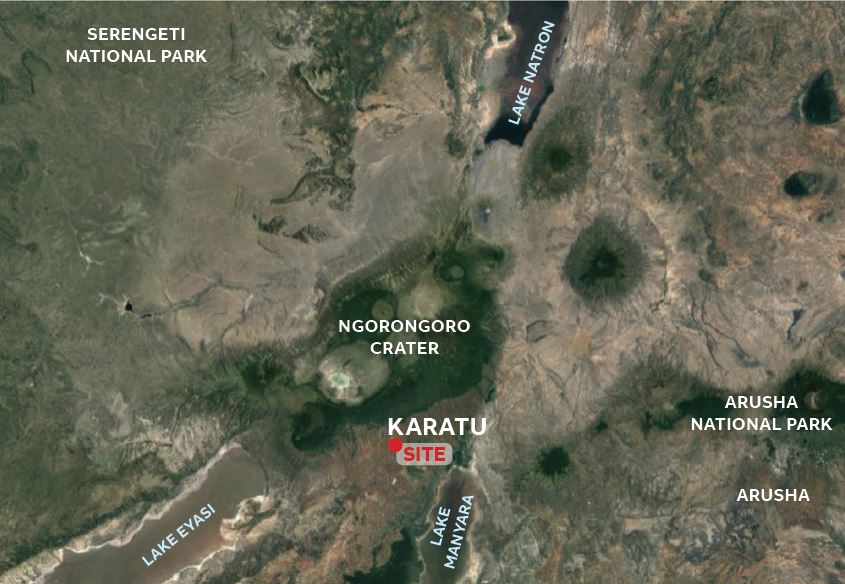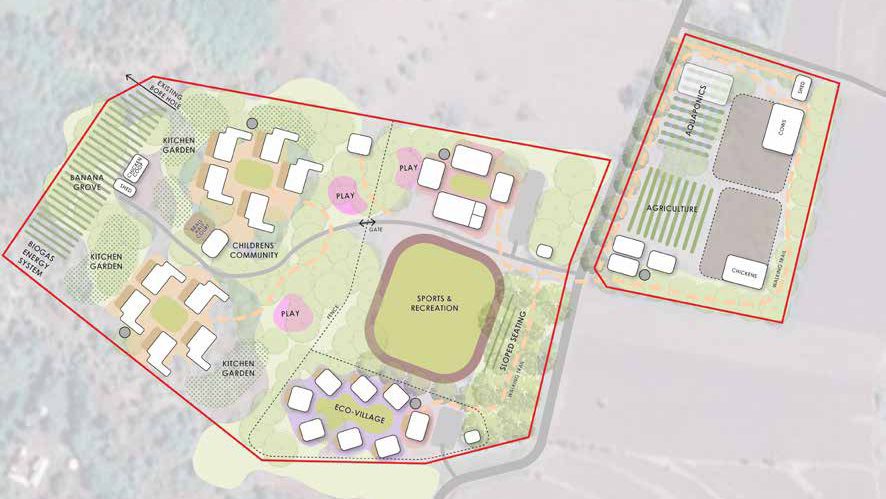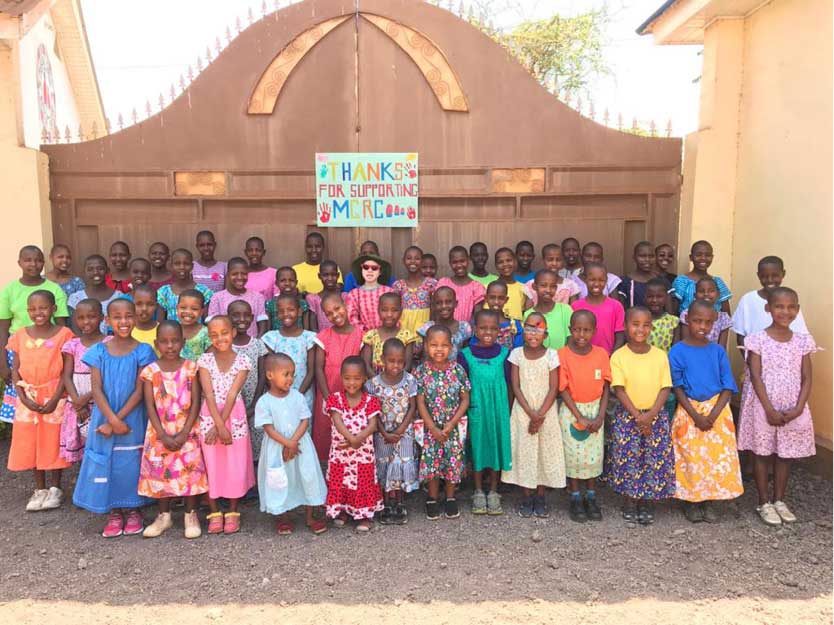The Maasai Girls Rescue Center’s ecoVillage is founded on the premise that the only lasting way to help people is to teach them how to help themselves.
Girls who come to the Center are alone, struggling for survival, suffering physical and emotional trauma from endemic poverty and cultural mores. Though female genital mutilation has been banned by the Tanzanian government, it is still practiced by many Maasai people, as is arranged marriage for young girls to much older men. Without intervention, these girls likely would die or endure scarred lives.
MGRC’s ecoVillage, a living and learning center in Karatu, would break this seemingly inevitable cycle by offering a stable, loving and healthy environment – and a fulfilling future – to these deserving girls.
Rather than becoming fateful victims, Maasai girls could assume control of their destiny.
To eat, they would tend gardens, raise livestock, cook meals and serve others. To sleep, they would share and maintain homes with other girls overseen by house mothers. To learn, they would attend local schools, acquire life skills through mentoring and taking classes at a skills training center. To earn a living, they would apply their learning at an on-site, revenue-generating ecoLodge for international tourists visiting one of the world’s most scenic areas.
The result? Independent, self-sufficient women sustaining their families and communities.
To achieve our vision of breaking the poverty cycle, we have established a model based around our care and sustainability principles
Making it happen
The vision of the MGRC’s ecoVillage is fast becoming reality, with construction of the three-acre farm nearly complete. Buildings are done, livestock are doing well, and the vegetables and nursery have been planted. The next phase is building homes for the girls.

Partnerships with private firms and governmental agencies, along with an experienced project management team on the ground and volunteer expertise from professionals in the United States, have moved the project from paper to fruition.
Rick Morro is the driving force. Morro founded MGRC in 2017 after living in the bush with the Maasai for 7 years. At the time, he was a retired businessman with a comfortable life in Scottsdale, Arizona, USA. He traveled to Tanzania on a church trip and felt called to help the Maasai tribe, particularly the girls. Morro began by developing a drip irrigation farm for a school. Then he agreed to care for a malnourished girl brought to him by a family. Then another girl came. From there, Morro created a center that grew, operating for several years in Longido.
Morro enlisted help from others. Through the help of friends and business associates, he and established a U.S. non-profit organization with a volunteer board, and later formed a Tanzanian International NGO. Board members include professionals with expertise in all areas of the center’s operations, including an entrepreneur with business startup experience, personnel and hotel management, law, finance, business process/system design, fundraising and marketing. Tanzanian board members also assist through their relationships with local safari and tourism companies and local government and community officials.
The ecoVillage design was created in 2020 by ClarkeHopkinsClarke, an Australian architectural firm with experience creating a master plan for a facility with similar goals in Africa. Their services were donated.
The perfect place for the ecoVillage was identified in Karatu, gateway to some of Tanzania’s premier tourism sites, including the Ngorongoro Crater. Fifteen acres were purchased by MGRC in January 2021.

Morro and the staff moved 52 girls, 14 adults and six cows on a seven-hour journey from Longido to temporary quarters in a hotel near the permanent site in Karatu. The girls and house mothers live at the hotel, leased economically because of the pandemic slowdown of international tourism.
MGRC has been supported by donated dollars and services. The organization’s success is attributable to its strong leadership and experience; local community and government support, including local officials in social welfare, education, farming, business and nonprofits; international donors sponsoring individual girls and projects; and volunteers giving their expertise, time and presence.
GrowthPoint, a boutique marketing firm in Clarkston, Michigan, contributes strategy leadership, marketing, administrative and financial services. GrowthPoint CEO Bruce Hammond serves as MGRC board president, and his wife, Joyce, serves as treasurer.
Sustainable projects have been in our DNA from the beginning. We have implemented sustainable projects to reduce our food costs and teach sustainable farming to our girls.
The need is now
Additional donations are needed for the next stage: building permanent homes for the rescued girls. MGRC ecoVillage plan is to construct five homes on the permanent site, eventually expanding to ten homes for 120 girls, with a playing field. Each home will shelter 12 girls and two house mothers. Girls will be grouped by age so they can help each other with schoolwork and learning life skills.
The need is urgent.
Our girls come to us alone, struggling for survival, many suffering physical and emotional trauma. We want to raise them as we would our own daughters. In a home, not a dormitory. With consistency and love from caring adults – Tanzanian house mothers, social workers and a paternal presence in their lives. Nutritious food and adequate healthcare. School and homework. Playtime and sports.
A vocational training center also will be built for learning life skills, the hospitality trade, and sustainable agriculture. Some girls will continue their education to secondary school and university, with ever-expanding career options.
Sustainable development is the pathway to financial independence.

Your ecoVillage investment will generate a positive, measurable social and environmental impact.
PHASE 1: Funded. Acquired 15 acres of land in Karatu, Tanzania, built access roads, and fully-operational ecoFarm with bio-gas fuel system, hydroponic fodder system, gardens, and livestock.
PHASE 2: Seeking Funds. Construct ecoVillage property fencing for 12 acres, a security gate, night watchman shelter, multi-purpose hall, main kitchen, and the girls’ ecoHomes (10).
PHASE 3: Seeking Funds. Build the ecoLodges (4), pre-school, vocational training center, sports field and running track, and administration buildings


Post a comment